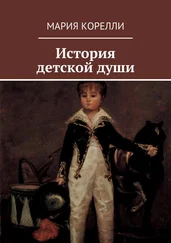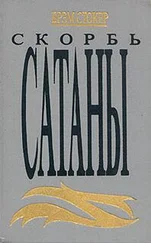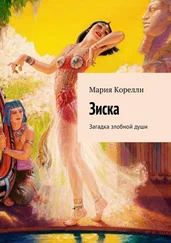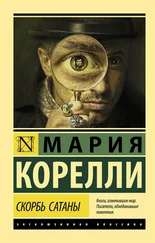I laughed at this piece of absurdity.
“Why, you are younger than I,” I said, “or if not, you look like it.”
“Ah, my looks belie me!” he returned gaily, “I am like several of the most noted fashionable beauties, – much riper than I seem. But read the introductory missive I have brought you.”
I at once opened my friend’s note and read as follows,
Dear Geoffrey.
The bearer of this, Prince Rimanez, is a very distinguished scholar and gentleman, allied by descent to one of the oldest families in Europe, or for that matter, in the world. His ancestors were originally princes of Chaldea, who afterwards settled in Tyre. From thence they went to Etruria and there continued through many centuries. Certain troublous and overpowering circumstances have forced him into exile from his native province, and deprived him of a great part of his possessions. He has travelled far and seen much, and has a wide experience of men and things. He is a poet and musician of great skill, and though he occupies himself with the arts solely for his own amusement, I think you will find his practical knowledge of literary matters useful to you in your difficult career. In all matters scientific he is an absolute master.
Wishing you both a cordial friendship,
I am, dear Geoffrey,
Yours sincerely
John Carrington.
I glanced furtively at my silent companion. He caught my stray look and returned it with a curiously grave fixity. I spoke,
“This letter, prince, adds to my shame and regret that I should have greeted you in so churlish a manner this evening. No apology can condone my rudeness, but you cannot imagine how mortified I felt and still feel, to be compelled to receive you in this miserable den.”
The prince waived aside my remarks with a light gesture of his hand.
“Why be mortified?” he demanded. “Rather be proud that you can dispense with the vulgar appurtenances of luxury. Genius thrives in a garret and dies in a palace. Is not that the generally accepted theory?”
“Rather a mistaken one I consider,” I replied. “Genius usually dies of starvation.”
“True! But there is an all-wise Providence in this, my dear sir! Schubert perished of want, but see what large profits all the music-publishers have made since out of his compositions! Honest folk should be sacrificed in order to provide for the sustenance of knaves!”
He laughed, and I looked at him in a little surprise.
“You speak sarcastically of course?” I said. “You do not really believe what you say?”
“Oh, do I not!” he returned, with a flash of his fine eyes. “I always realize the proverb ‘ needs must when the devil drives [11] needs must when the devil drives – нужно покориться, когда погоняет дьявол
.’ The devil drives the world, whip in hand, and oddly enough, succeeds!”
His brow clouded and the bitter lines about his mouth deepened and hardened. Anon he laughed again lightly and continued,
“But let us not moralize. Morals sicken the soul both in church and out of it. Every sensible man hates to be told what he could be and what he won’t be. I am here to make friends with you if you permit. To put an end to ceremony, will you accompany me back to my hotel where I have ordered supper?”
By this time I had become indescribably fascinated by his easy manner, handsome presence and mellifluous voice. The satirical turn of his humour suited mine. My first annoyance abated.
“With pleasure!” I replied. “But first of all, you must allow me to explain matters a little. You have heard about my affairs from my friend John Carrington. I know from his private letter to me that you have come here out of pure kindness and goodwill. For that generous intention I thank you! I know you expected to find a poor wretch of a literary man. A couple of hours ago you would have amply fulfilled that expectation. But now, things have changed. I have received news which completely alters my position. I got a letter…”
“An agreeable one I trust?” interposed my companion suavely.
I smiled.
“Judge for yourself!”
I handed him the lawyer’s letter which informed me of my suddenly acquired fortune.
He glanced it through rapidly, then folded and returned it to me with a courteous bow.
“I suppose I should congratulate you,” he said. “And I do. Though of course this wealth which seems to content you, to me appears a mere trifle. It can be exhausted in about eight years or less. To be rich, really rich, one should have about a million a year. Then one might reasonably hope to escape the workhouse!”
He laughed, and I stared at him stupidly, not knowing how to take his words, whether as truth or idle boasting. Five millions of money a mere trifle! He went on,
“The inexhaustible greed of a man, my dear sir, can never be satisfied. If he gets one thing, he wants another, and his tastes are generally expensive. A few pretty and unscrupulous women for example, will soon relieve you of your five millions. Horse-racing will do it still more quickly. No, no, you are not rich, you are still poor, only your needs are no longer so pressing as they were.”
He broke off and raised his head,
“What is that?” he asked.
It was the violinist next door playing a well-known “Ave Maria.” I told him so.
“Dismal, very dismal!” he said with a contemptuous shrug. “I hate all that kind of mawkish devotional stuff. Well, Mr. Millionaire! There is no objection, I hope, to the proposed supper? What do you say?”
He clapped me on the shoulder cordially and looked straight into my face. Those wonderful eyes of his completely dominated me. I made no attempt to resist the singular attraction which now possessed me for this man whom I had but just met. Only for one moment more I hesitated, looking down at my shabby attire.
“I am not fit to accompany you, prince,” I said. “I look more like a tramp than a millionaire.”
He glanced at me and smiled.
“Upon my word you do!” he averred. “But be satisfied! It is only the poor and proud who dress well. An ugly coat often adorns the back of a Prime Minister!”
He rose.
“Why think of the coat if the purse is full!” he continued gaily. “Now come along. I want you to do justice to my supper. I have my own chef with me, and he is not without skill. I hope, by the way, you will let me be your banker?”
This offer was made with such an air of courteous delicacy and friendship, that I accepted it gratefully, as it relieved me from all temporary embarrassment. I hastily wrote a few lines to my landlady, telling her she would receive the money owing to her by post next day. I extinguished the lamp, and with the new friend I left my dismal lodgings and all its miserable associations for ever. I went joyfully out of the dreary house where I had lived so long among disappointments and difficulties. The last thing I heard as I passed into the street with my companion, was a plaintive wail of minor melody by the unknown and invisible player of the violin.
Outside the prince’s carriage waited, drawn by two spirited black horses caparisoned in silver. We stepped in. As I sank back among the easy cushions, I felt the complacent consciousness of luxury and power. My brain was in a whirl, my thoughts were all dim and disconnected. I was in some whimsical dream from which I should wake up directly.
The carriage rolled on and made no noise as it went, one could only hear the even rapid trot of the horses. By-and-by I saw in the semi-darkness my new friend’s brilliant dark eyes fixed upon me with a curiously intent expression.
“Do you not feel the world already at your feet?” he queried half playfully, half ironically. “It is such an absurd world, you know, so easily moved. Wise men in all ages have done their best to make it less ridiculous. With no result, inasmuch as it continues to prefer folly to wisdom.”
Читать дальше







![Мария Корелли - Вендетта, или История всеми забытого [litres]](/books/393212/mariya-korelli-vendetta-ili-istoriya-vsemi-zabytogo-thumb.webp)



